
words

What We Have
There is tremendous wisdom within every one of us, and the practice helps awaken it. As our wisdom awakens, it becomes natural for us to share the sublime wonder of whatever we touch when we engage ourselves so deeply.

The Razor’s Edge
Ashtanga Vinyasa has a razor sharp edge, and when we fall on it, as many of us do, it cuts us to the bone. There are many among us (myself included) who have been drawn to that experience of being cut, opened, exposed. There is a silent exhilaration in that experience, after the practice is done, when the nerves sing, the tissues tingle, and the organs hum.

Hold Your Broken Heart
We are crippled by a profound lack of trust in our own unfoldment, a lack of trust in the natural movement of things, a lack of trust that our blossoming can take care of itself.
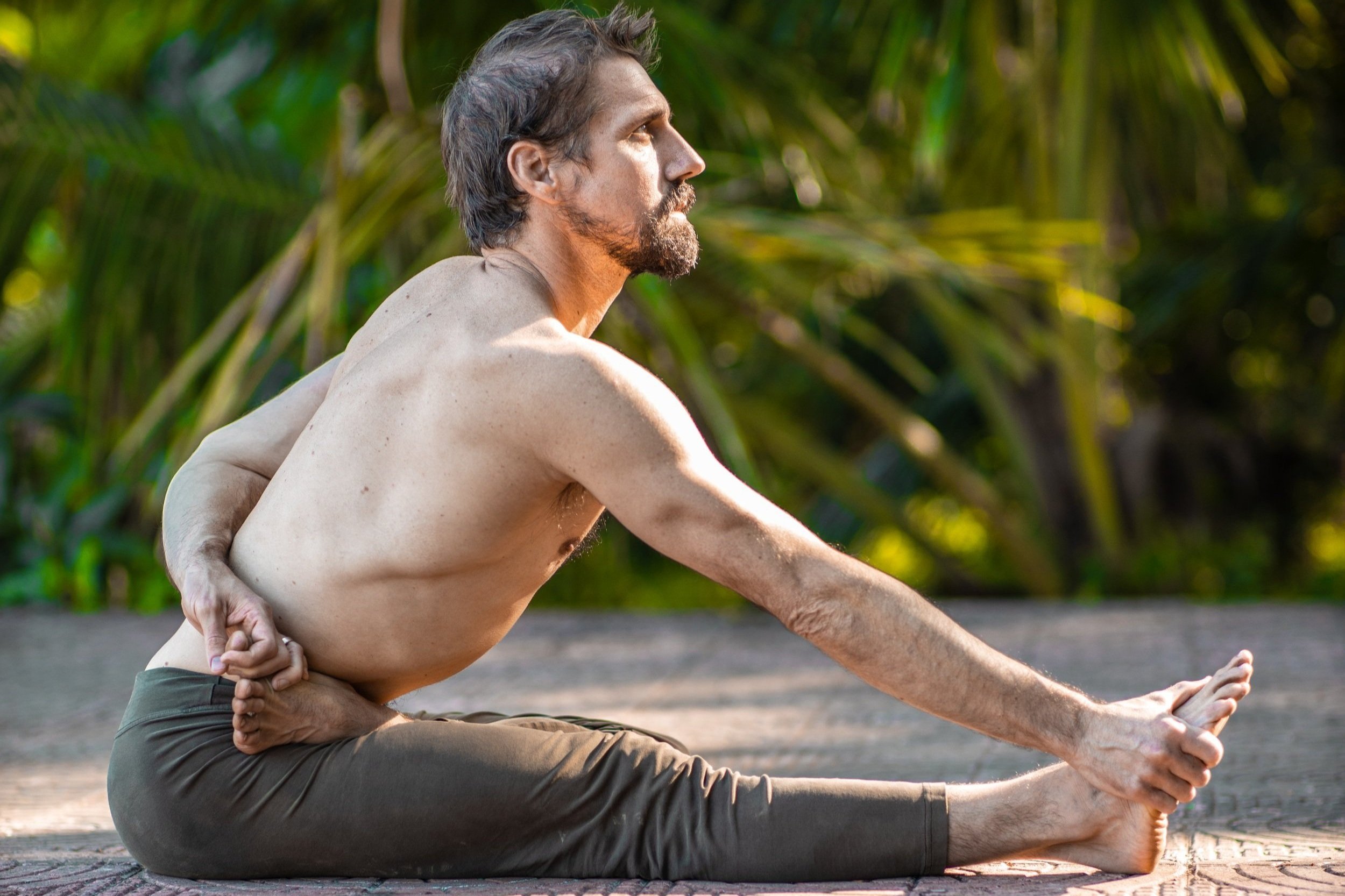
Is Ashtanga Too Linear?
The learning curve for the Primary Series is steep, and those who scale it with fervor are likely to suffer aches and pains along the way. Injuries and setbacks, together with lost hopes and dreams, are not altogether uncommon.

Secrets of Alignment
Hatha Yoga works with opposing forces of breath and invites these forces to align. When the breath aligns, the experience of the body opens up, revealing endless patterns of sensation. The practice is to be present with sensation, allowing it to unfold in the open expanse of awareness, only to dissolve again into the emptiness from which it arose.

Am I Ready for the Second Series?
We never really complete the Primary Series, but we keep rediscovering it, and rediscovering ourselves in the process. This is perhaps the most important thing to keep in mind when facing the vexed question, which every Ashtanga student must eventually face: Am I ready for the Second Series?

Yoga and Sexual Fantasy
We never really complete the Primary Series, but we keep rediscovering it, and rediscovering ourselves in the process. This is perhaps the most important thing to keep in mind when facing the vexed question, which every Ashtanga student must eventually face: Am I ready for the Second Series?

The Illusion of Social Media
These images—like yoga postures themselves—are symbols of something that we long to touch, something from which we are profoundly estranged and dream to rediscover on the edges of the world. They remind us that we all embody this enigmatic something, though we reach for it endlessly.
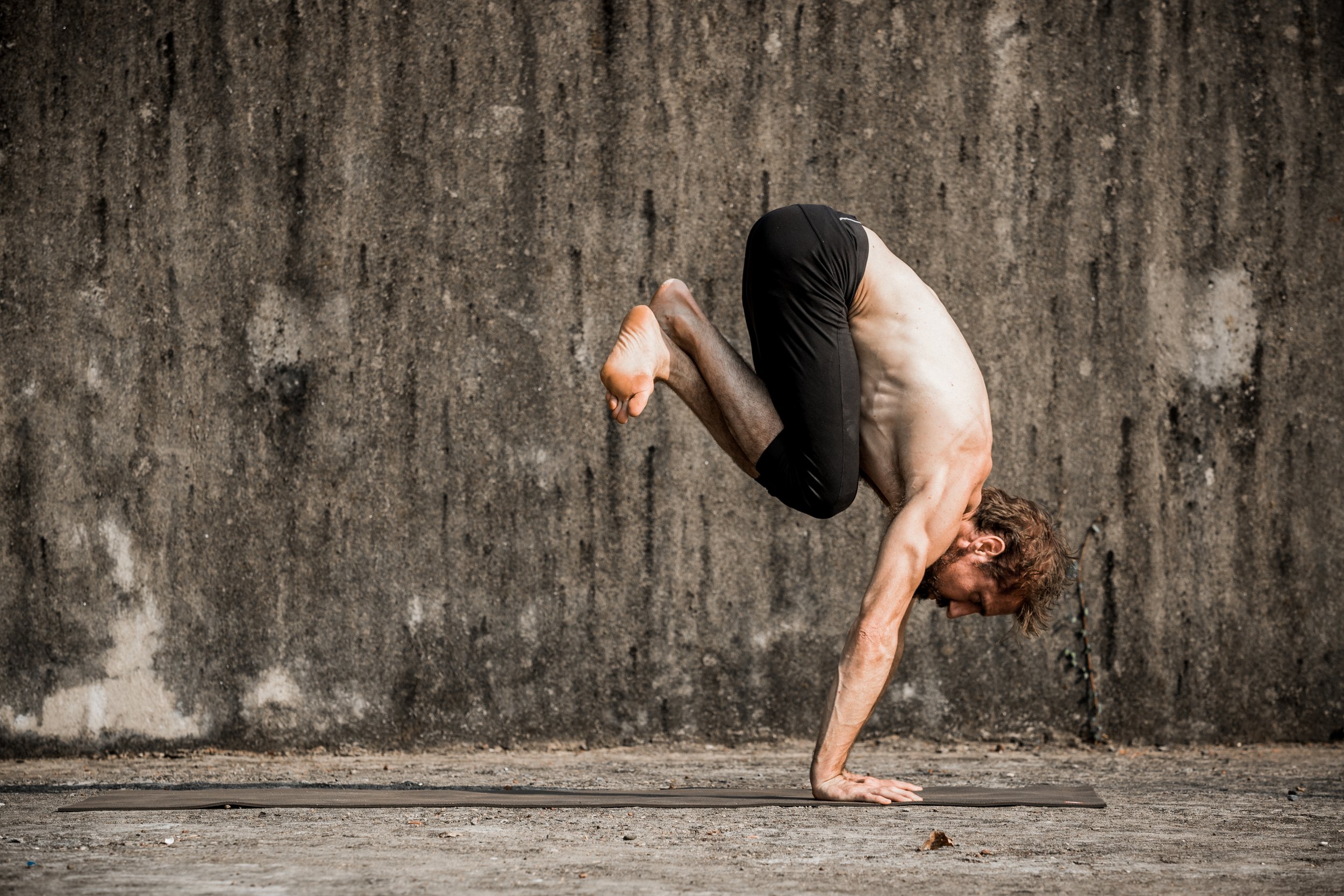
Mula Bandha
Mula Bandha is the spontaneous gathering and rising of the subtle breath from the pelvic floor to the crown of the head. This auspicious movement is said to open the central channel of the body, clearing away condensed memory and emotion, and restoring consciousness to the original wholeness that we enjoyed in the womb.
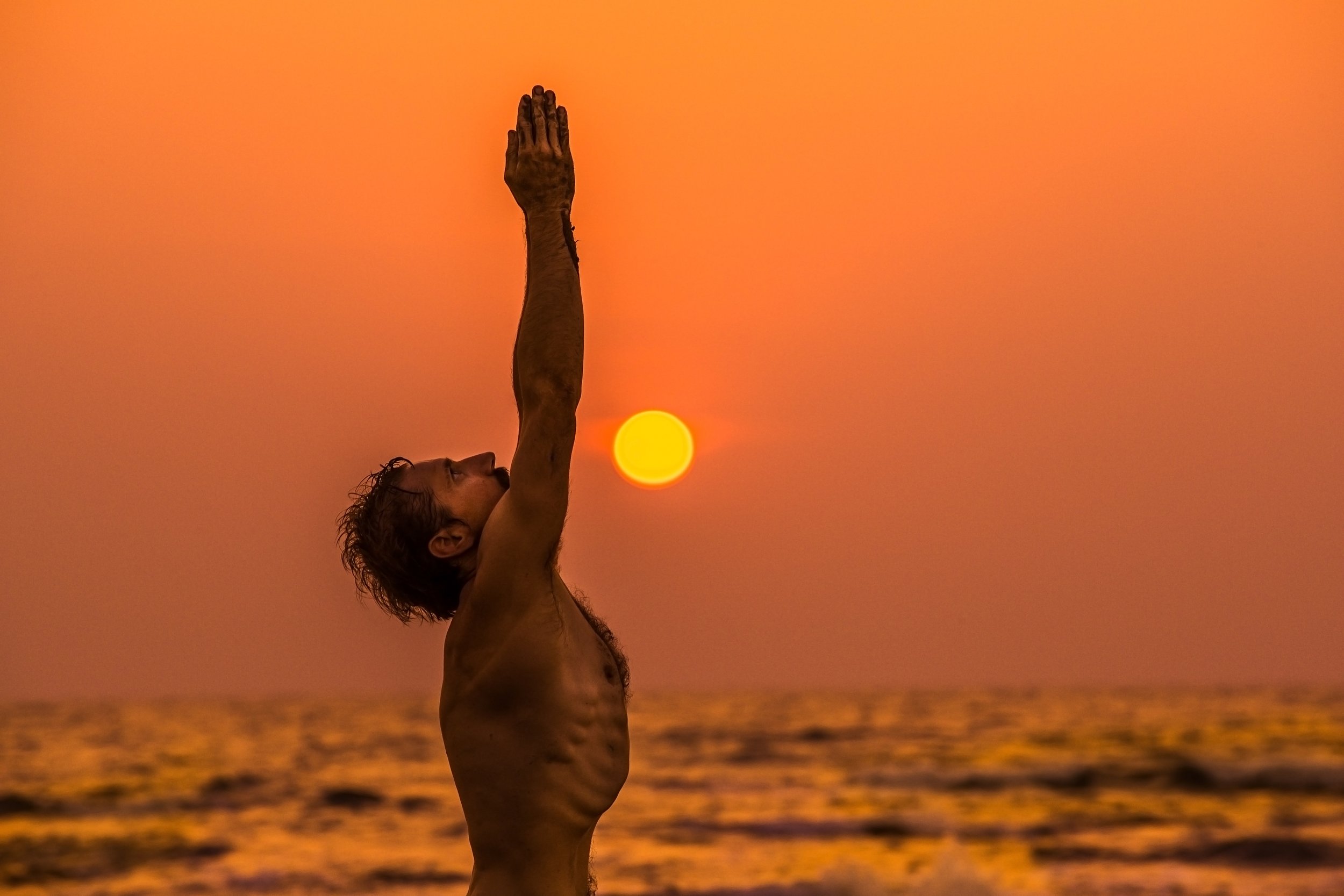
Surya Namaskar
Surya Namaskar means “Salutations to the Sun.” In the context of yoga, the Sun is not only the celestial body that gives us warmth and daylight, but the radiant center of the human body, where our vital forces converge.

What Is Alignment?
Hatha Yoga is a method of opening ourselves to the fullness of sensory experience, and exposing ourselves to the presence of the sublime—not within particular sensory objects, but within the open space of our own consciousness.

Seeing Through Yoga
Sometimes, to see the beauty of things, you have to squint. You have to contort your face until your sight blurs. Things that appeared ugly or rude then fade into the background, and become part of a larger pattern, with its own kind of beauty.

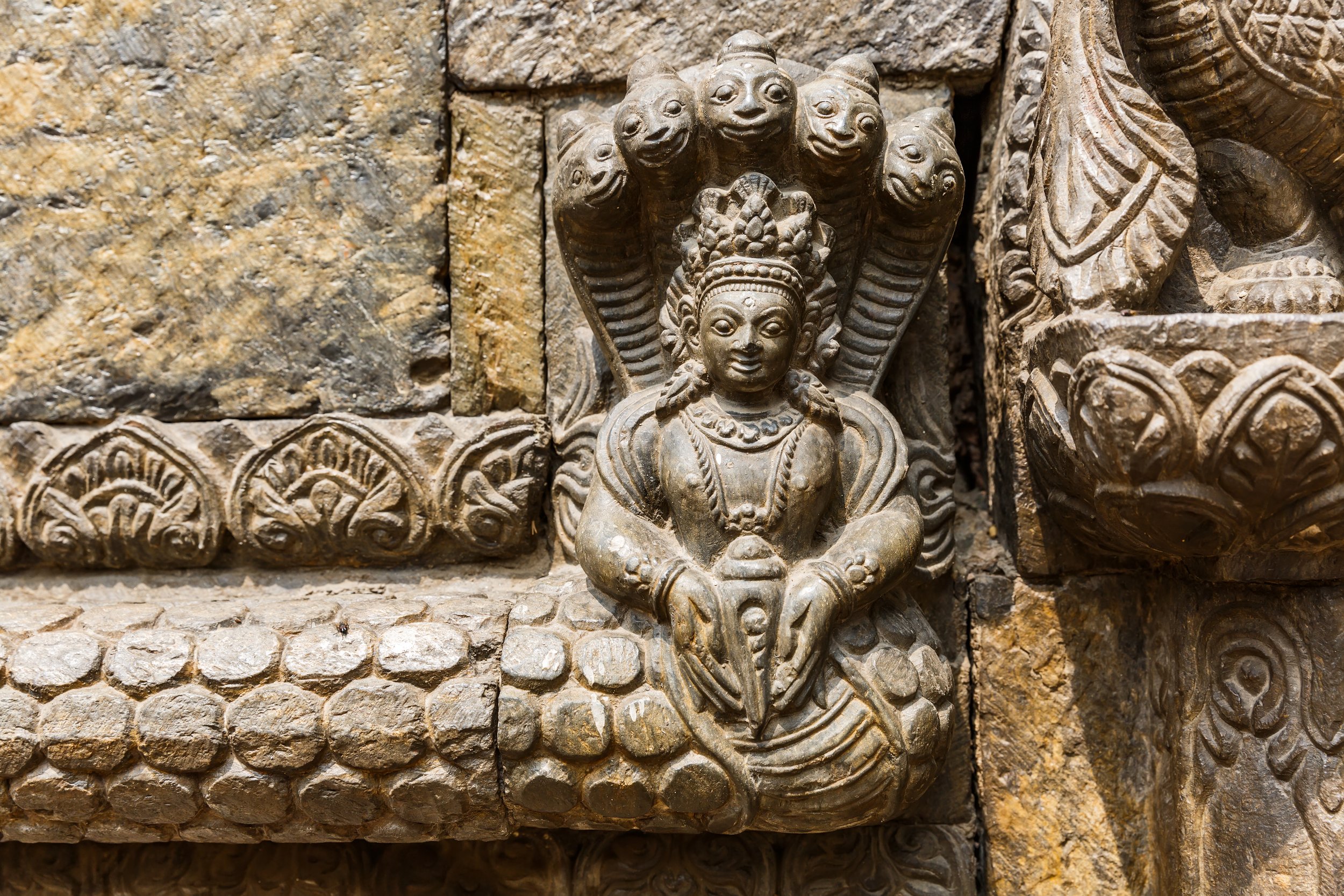
Serpent Imagery
The Ashtanga Invocation contains an homage to Patanjali, the mythic author of the Yoga Sutra. The second verse takes the form of a dhyana sloka, a support for meditation that describes an image upon which to focus the mind. To work with this kind of verse, we are not only to visualize, but to imagine ourselves as fully embodying what the verse describes.
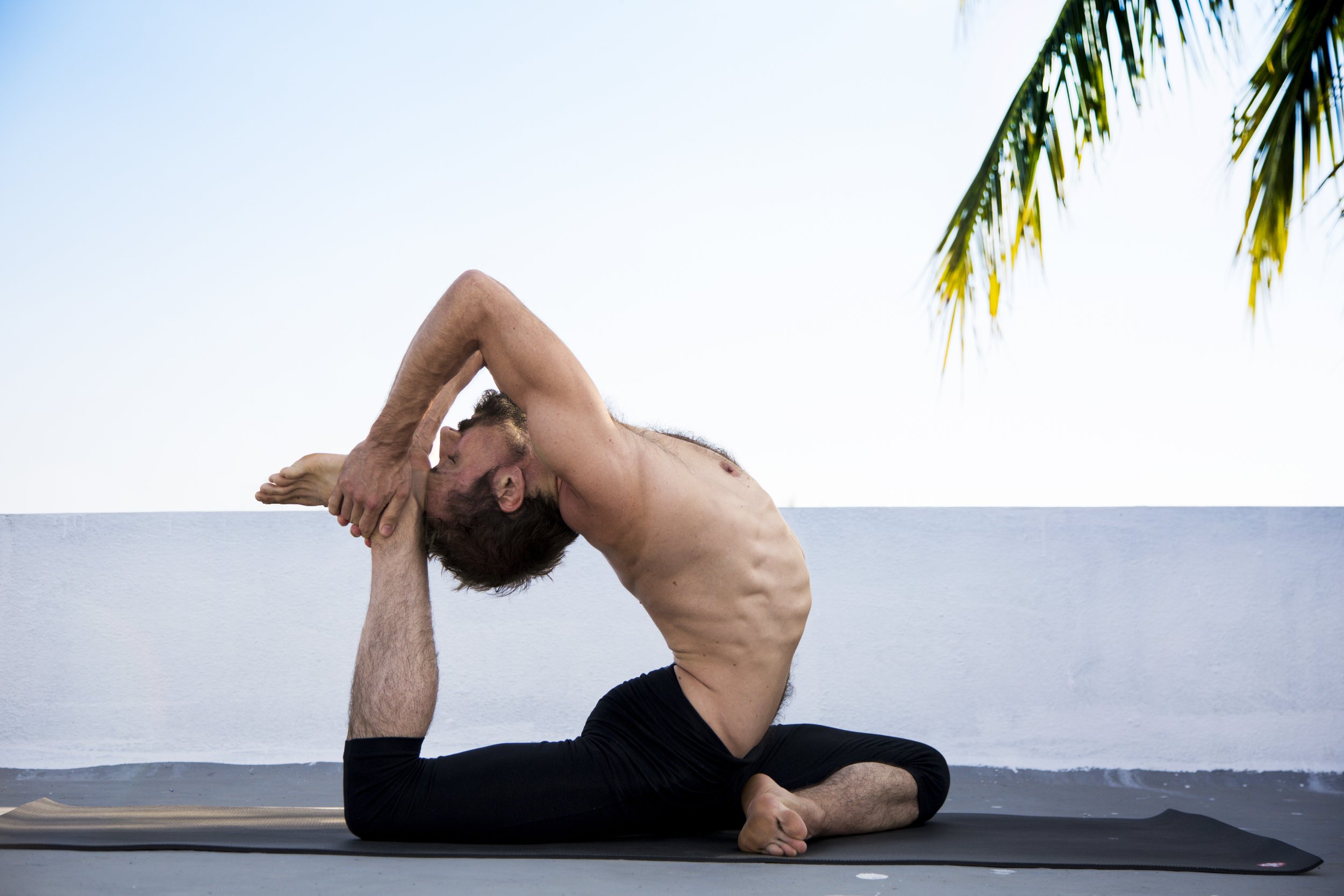
The Music of Yoga
Ashtanga Vinyasa is a musical form. The postures are strung together like the notes of a melody, over a constant drone of breath. When we move through the postures with a steady cadence, the music of the practice begins to emerge.

Ashtanga and the Feminine
In many ways, the Ashtanga practice embodies the romance of Siva and Sakti. It embodies the sacred and sometimes explosive dance between the masculine and feminine, or between creativity and awareness.

Notes From Mysore
My concerns about cliquish attitudes have all been washed away, and I smile gently at myself for having born them at all. Instead of finding cliquish attitudes, I have found attitudes of humility, contentment, kindness and compassion, all signs that the practice is working.

For the Sake of Others
Somewhere along the path of yoga, the ground starts moving beneath our feet, and our concerns for ourselves, for our own development, are pitched high into the air. As they fall around us, showing us their true shapes and colors, they appear much less important than before.

Tasting the Poison
The premise of Ashtanga is that, if we can allow these poisons to arise, and we can hold them in our awareness without either resisting them or acting them out, they will slowly lose their potency. That is, they will lose some of their power to influence in our minds, and our minds will become lighter in the process.
